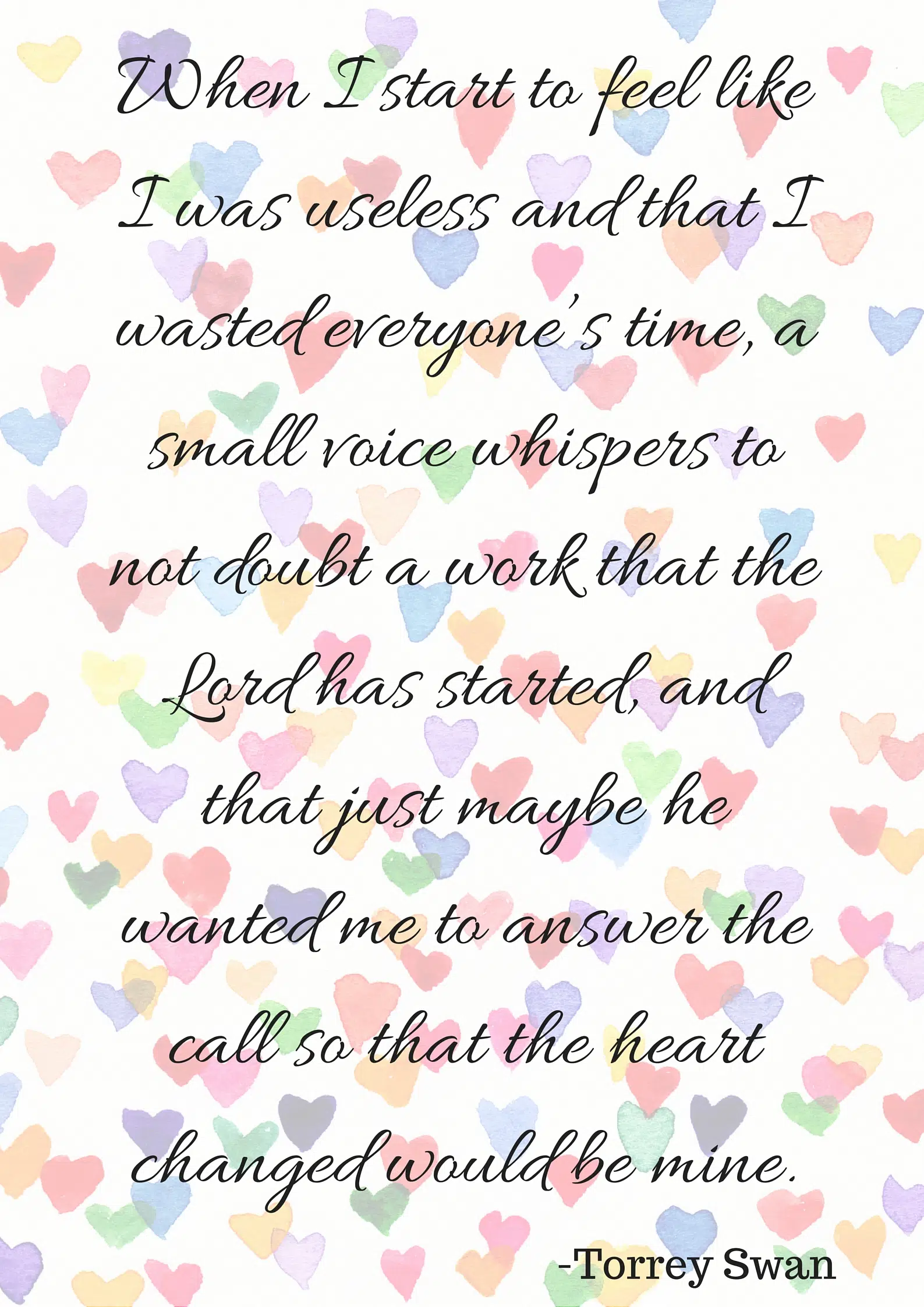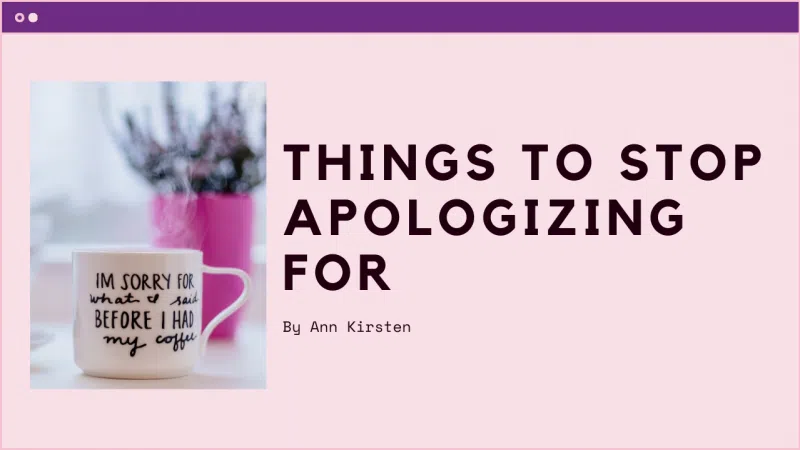Most 17-year-olds know everything, and I was no exception. I knew my parents were dumb, that I was so clearly a genius, and most importantly, that I would need to make a trip to Florida for spring break if my social life was going to mean anything.
Somehow, I talked them into this spring break plan of mine and was counting down the days. Everything was going according to plan…until two weeks before spring break when my parents heard about a mission trip to Mexico that the youth group was taking. It was proclaimed that the Florida trip was off, and instead I would be required to go serve in Mexico for ten days. Ten days! With no social life, no TV, not even the ability to speak the language.
I was outraged, and it was one of the best things that ever happened to me.
The Mexico trip started a fire in my heart for international mission work. Specifically, international mission work concerning orphans. Those were eye-opening, humbling and grace-filled days. It was gut-wrenching to see a young deaf boy who couldn’t hear only because the battery in his hearing aid had died. The battery had been requested several times, but kept getting confiscated by corrupt government officials. That something so simple was such an easy fix back home made it all the more unfair. As I was still a child myself, I saw orphans that were my age, and I wondered how differently we must see the world.
At age 21, I wanted to go somewhere, to help someone, to spend my summer serving a greater good and a living God. Through an organization called Buckner, based in Dallas, I made the commitment to go to Romania for about 5 weeks. I had never been to Europe, but was young and idealistic enough that I didn’t face the trip with anxiety or fear, only excitement. I naively believed I would change the world in those 35 days.
While we were there, we volunteered with three different orphanages. One was a facility in the village of Zau. It was an all-girl orphanage, and the building was actually an old home of a government official from the early 1900s.
This was the first time that I was confronted with the reality that not all children who live in orphanages have lost both parents. In fact, many of the girls there had parents who lived in the same village. One girl in particular had been abandoned at age 4. Her mom and siblings all lived at home and would come to visit her every year on her birthday, and every year her mom promised she would bring her back home. She was 16 and still chose to believe that this year would bring the birthday her mom followed through.
A second children’s home was strictly for mentally disabled children. One boy would fashion rather convincing vacuum cleaners from whatever he could find in the yard and pretend to clean the dirt out of the backyard for hours. I thought it was a strange habit, and mentioned it to the ‘House Mother’. With the aid of a translator, she told me that he had been taken from his family for being beaten with a vacuum hose repeatedly and that was the result.
She pointed out another boy who was taken away from his home after a neighbor repeatedly complained about strange noises coming from someone’s backyard. When it was investigated, a family had left their infant son in the pig sty to fend for himself. He would not use words, but would only snort like a pig.
As awful as these stories are, they were the lucky ones. Lucky because they got out. They were living in places that were not ideal, but that were warm, provided clothes and three meals a day.
From our hotel window, we watched as young teenage girls prostituted themselves throughout the night. Young, beautiful girls with nowhere to call home, whom no one would search for should they go missing. Those girls had a far scarier future to face. As of 2012, there were still 70,000 orphans in Romania (NPR, August 2012) and several thousands more living on the streets who were not counted. I left feeling defeated and wondering if I made a difference, or just made it worse by being another person to leave them behind.
Three years later, I had the opportunity to serve orphans in Ukraine through a Ukranian based organization called Radooga. I jumped at the chance, although more realistic than I had been three years prior.
The statistics in Ukraine are not much different. Out of the roughly 100,000 orphans, about 10% have lost both parents. The other 90% have parents that have decided they no longer want them, or can no longer afford them, or would rather buy drugs than take care of their children. As was the case in Romania, these parents often have other children living at home. A 15-year-old girl showed me happy pictures of her younger brother sitting on Santa’s lap that her parents had mailed her. Many of the children would actually go home for the holidays, only to be sent back at their conclusion.
It’s worth noting I cannot fully blame the parents in some of these situations. In fact I think that, under certain circumstances, admitting that you are unable to give your child what someone else can is possibly the bravest thing a parent can do. The truth is that life in former soviet countries is still recovering, and not nearly as stable as it needs to be. Many of these parents know that they simply cannot provide for their children what they need to survive. I do not mean to paint a picture showing these places as small utopias in the midst of a fragile country. There were numerous stories of hardship even in the homes and between the orphans, but it remains that it is simply the better of two horrible options.
As orphans in Ukraine, they receive a monthly allowance from the government and the opportunity to attend college. However, the dropout rate is staggering. These children have lived in group homes for most of their lives, with very little structure and no one to monitor their progress in school. Take those habits and combine them with a significant lump sum of money, an apartment in a large city, and no support system, and you can see how motivation quickly wanes. Selling of drugs, drug abuse, prostitution and sex trafficking are problems that loom large, and only serve to perpetuate a broken and overwhelmed system.
Determined to not be yet another person that abandoned these children, I maintained relationships with some of them, as did most people in our group. I was able to return to Ukraine two years later and see the same sweet faces. Many people went 4, 5, even 6 years in a row. A very dear friend moved to Ukraine for a couple of years in order to work even closer with the kids she had come to love so much.
It seems so overwhelming and daunting and absolutely hopeless when I think about it too much. I still question if I was able to help, even in just a small way. When I start to feel like I was useless and that I wasted everyone’s time, a small voice whispers to not doubt a work that the Lord has started, and that just maybe he wanted me to answer the call so that the heart changed would be mine.
Orphans are all around us, here or abroad. It is beautiful to see the simple acts we can do to profoundly impact their lives. Does your heart feeling a stirring toward orphans? Pray and trust God to help you find your place.

















